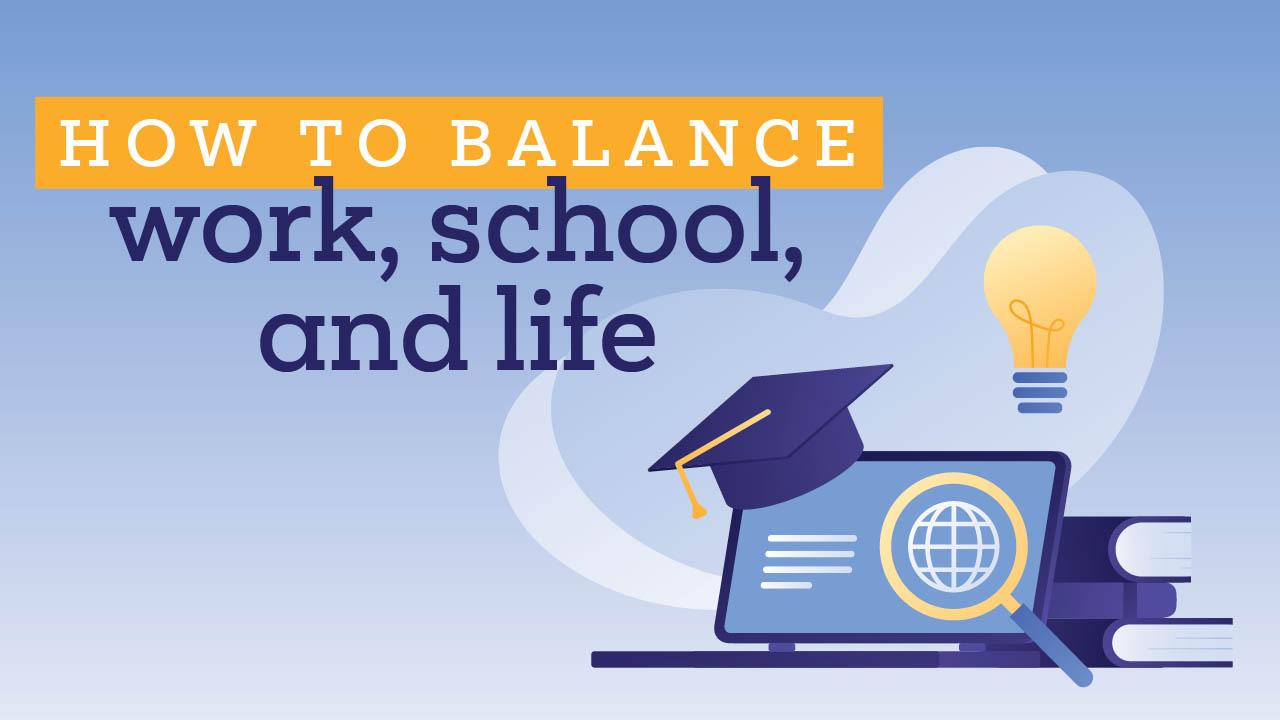How to balance work, school, and life
 CREDIT: FSU PUBLICATIONS AND COMMUNICATIONS DEPARTMENT.
CREDIT: FSU PUBLICATIONS AND COMMUNICATIONS DEPARTMENT.Your experiences at college may undergo several alterations. From switching employers to being in your first relationship to dealing with various health-related problems. These changes may become difficult and overwhelming. In which case, here are a few effective steps that will help you manage your college life.
1. Develop a plan
Planners, schedules, and goal-tracking apps are going to become your best friends in college. This quantitative-based method will require you to calculate all your time expenditures. Record and determine the hours you expect each day for every activity you perform in a week. Once you have blocked off time from your daily schedule, you’ll notice all your available time. On a monthly calendar, you can also oversee your full weeks and be able to allocate appointments that won’t conflict with other essential events.
2. Support and resources
Communication is key. Being able to express your struggles with your daily life is important. Conversing with your housemates, professors, and employers about your situation is vital, allowing them to acknowledge your workload. Resources such as guidance and mental health counsellors are extremely beneficial, especially when you feel stressed. These resources may also further assist you with your situation by recommending shifts in your timetable or course load.
Moreover, Academic Advisor for the School of Information Technology and Student Success Advisor, Faith Wallis, acknowledged the many concerns she’s dealt with from students.
“I do a lot of defusing with students,” said Wallis. “It’s always about helping them find those resources and counselling services both on and off campus.”
Wallis works to help students with their mental health, as it affects their education. Find out who your Academic Advisor is early, so you know where to go when you’re struggling to balance your schedule.
3. Burn-out and managing stress
Drinking excessive amounts of caffeine or becoming a social media addict are signs of burn-out and tension. These damaging obsessions will become detrimental to your success in college. Remember, your free time is extremely valuable when you undertake multiple tasks alongside school. These open time slots should be employed to help relax and rejuvenate you for your workweek. Understanding and researching techniques to control stress or obstacles that interfere in your life is key in good time-management practice.
Wallis also mentioned the effects of not taking a break and the impact it has on your schooling.
“I like to tell them [students], they need to treat school as a full-time job,” she said. “You take 40 hours, five days a week to work. Then, you take a day for yourself and a day for your friends. Because if you are focusing on school 100 per cent of the time, you are going to burn-out.”
4. Reward yourself
It’s not easy, I know. But it’s important to reward yourself for all your hard-work and dedication. This reward is something you set, that you think you earn. It’s important to celebrate your major and minor accomplishments, especially after you finish a hectic workweek. Treat yourself to a spa date or a movie and take care of yourself.
5. Taking advantage of flexibility in school and work
Often, your work or school may allow you to replace classes and shifts for different time slots. When you are feeling overwhelmed with your schedule, seek ways to reorganize and re-establish timing for your daily activities. It may be beneficial to replan occasionally if you feel exceedingly swamped.
With proper scheduling, communication and stress management skills, balancing commitments outside of college isn’t too difficult. But these skills require time and practice, so be easy on yourself. Remember your end goal and that dedication and hard work are going to help you achieve your aspirations.
















